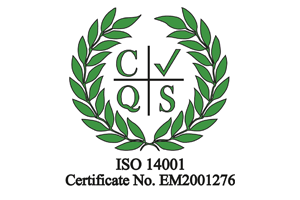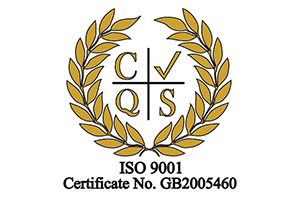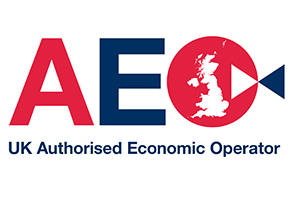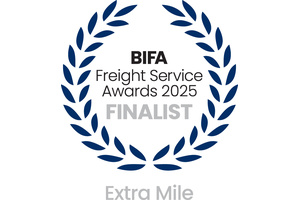The UK’s HMRC switches from CHIEF to CDS in a radical upgrade to customs clearance systems

Since Brexit took effect in January 2021, the reintroduction of customs clearance at the UK and EU borders has had the most significant impact of any previous regulatory changes to the European transport sector.
Faced with this seismic change to our operation and service delivery, our priority was to do everything possible to maintain seamless transit of our customers freight and the minimum of delay to our trucks. To achieve this, we collaborated with the UK customs authorities to create our own dedicated customs clearance agency and brokerage.
We invested in the necessary infrastructure to become a direct representative and an Authorised Economic Operator (AEO) and the financial arrangements to provide access to guarantees and authorisations including Transit Guarantee, Deferment Account, and Authorised Consignor for the benefit of our customers. We recruited a specialist, qualified team who are all graduates of the UK Customs Academy.
In addition to our inhouse team, we established a robust network of customs agents throughout Europe enabling us to offer complete door to door Brokerage that integrates seamlessly with our transport and 4PL logistics solutions.
In the most radical development since that change three years ago, the UK’s HMRC will be closing its Customs Handling of import and Export freight system (CHIEF) and migrating to the new Customs Declaration Service (CDS).
Why is CHIEF being replaced with CDS?
CHIEF is the customs declarations system that has been used by HMRC for over thirty years. Because of its age and complexity, it was not practical to try to upgrade CHIEF to comply with the latest EU customs requirements specified in the Union Custom Code (UCC).
CHIEF’s replacement, CDS, is a flexible, modular platform that is built to scale with the growth of international trade. In a statement, the Directors General for Borders and Trade at HMRC said, “CDS is a key part of the government’s plans for a world-leading fully digitised border that will help UK businesses to trade and to prosper.”
What are the main differences between CHIEF and CDS?
- Most customs declarations were submitted electronically to CHIEF, however, it was originally designed to accept paper forms and had to be retrospectively adapted. The CDS system has been designed to be completely digital from day one.
- CDS requires more accuracy, additional data requirements, and increased use of codes instead of free text.
- Different data sets are required depending on type of declaration.
- There are additional methods to make declaration payments of customs duties, including a new ‘cash account’ which allows agents and shippers to deposit money and top up to pay duty.
- CDS enables you to update customs agent permissions online.
- Country codes: The country code ‘EU’ is no longer an option for the country of dispatch/country of origin and the proper country code will need to be used, e.g.: FR for France.
What is the CHIEF to CDS switchover timeline?
Imports using CDS were implemented on 31 October 2021 when all imports from Rest of World (RoW) to Northern Ireland had to be declared using CDS.
CHIEF imports closed on 30 September 2022 and the requirement to file declarations using CDS extended to all imports into the UK from this date.
The deadline for selected high-volume declarants to move over to CDS Exports was the 30th November 2023 and as part of a phased approach all other businesses must move over by 30th March 2024.
Is the Efret customs team ready?
The short answer is yes. Our team has been working hard behind the scenes and has already implemented our preferred solution. Having developed a robust partnership with the HMRC approved interface provider AEB, we have conducted intense testing over the past few months. We are actually making our switch early on the 11th March 2024 – more that three weeks before than the official switchover date, to ensure that any last-minute glitches are ironed out.
In conclusion:
Businesses that import and export goods to and from the EU have already been subjected to huge change and in some cases, where customs clearance has not been managed appropriately, huge disruption to supply chain integrity.
Our customers have told us that trusting our team to make customs declarations as part of their European freight movements has been extremely beneficial. They appreciate our advance planning, knowledge and experience that minimises delay to transit times and ensures compliance with customs protocols, so have no doubt that this latest change will be seamless.
Get in touch with our specialist customs team for advice about the switch or to find out more about our customs service.
Recent articles

Efret proud to announce renewal of AEO accreditation
5th February 2026 1 minute read

Efret welcomes Tendron as GB Global bolsters European network
28th January 2026 1 minute read
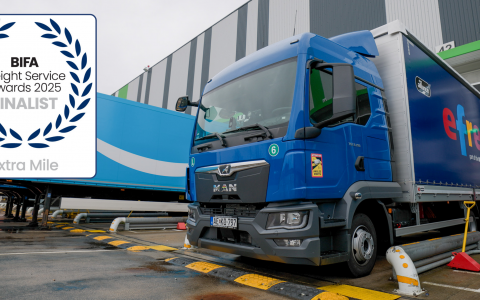
Efret Shortlisted for BIFA ‘Extra Mile’ Award 2025
29th October 2025 2 minute read

Efret Shortlisted for Van Business of the Year at Logistics UK Awards 2025
20th August 2025 2 minute read

